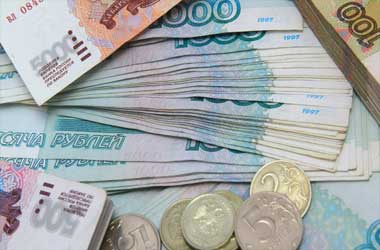 The US dollar declined against the euro yesterday after the initial jobless claims missed economists’ estimates by a huge margin.
The US dollar declined against the euro yesterday after the initial jobless claims missed economists’ estimates by a huge margin.
Additionally, personal spending also declined more than anticipated. In the past 24 hours, the EUR/USD rallied from a low of 1.0833 to a high of 1.0950.
According to the US Department of Labor, the number of US citizens who filed for unemployment benefits dropped to 3.830 million in the week ended April 5, from 4.442 million in the earlier week.
Economists had anticipated a decline in the jobless claims to 3.500 million. The figures indicate that layoffs have begun to spread to sectors that were not earlier affected by Covid-19.
Biggest increases in jobless claims were recorded in California, Florida, Texas, New York and Georgia.
The seasonally adjusted insured unemployment rate stood at 12.4% for the week ended April 18, up 1.5% from the earlier week’s amended rate.
It indicates the greatest level of seasonally adjusted insured unemployment rate since the organization started posting the figures. The earlier week’s rate was amended downwards by 0.1% to 10.9%, from 11%.
For the week ended April 18, the advance number of seasonally adjusted insured unemployment was 17,992,000, up 2,174,000 from the earlier week’s amended level.
In the US, personal spending declined 7.5% m-o-m in March, after increasing 0.2% in the earlier month. Economists had anticipated the US personal spending to drop by 4.8%.
The reported figures mirror the largest ever drop in personal spending as the Covid-19 issue affected household consumption.
Real personal spending decreased 7.3%, following a 0.1% increase in February, primarily due to a decrease in spending on services (-9.5% against 0.3% in February) and on goods (-2.2% versus -0.5%).
The Bureau of Economic Analysis stated that Core PCE Price Index fell 0.1% in March, after increasing 0.2% in the earlier month. The reported figures matched forecasts of analysts.
Personal income fell $382.1 billion (or 2%) in March. In the earlier month, personal income increased 0.6%. Economists had anticipated personal income to decline by 1.6%.
Disposable personal income (DPI) declined $334.6 billion (2%) and personal consumption expenditures (PCE) fell $1,127.30 billion (7.5%).
The PCE price index dropped 0.3%. Barring food and energy, the PCE price index declined 0.1%.
Real DPI declined 1.7% in the reported month, while real PCE dropped 7.3%. The PCE price index dropped 0.3%. Barring food and energy, the PCE price index declined 0.1%.




